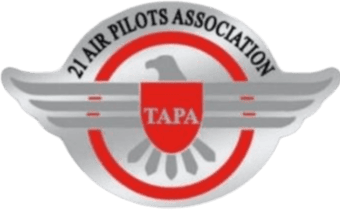Dues Planning

Financials on Union Dues
1. Dues - How much are they?
Local IBT 1224’s dues structure is 1.56% of gross pay. Of that, 79% stays with Local 1224 and 21% is allocated to per capita fees.
A review of the past few years reflects that nearly half ($0.47 of every dollar as of June 2023) of the dues each member pays are allocated directly to your carrier’s Executive Council budget specifically for the representation of 21 Air's pilots - as directed by your Executive Council.
Members receive information about how dues money is spent by their local at quarterly membership meetings, and local unions also file annual reports with the U.S. Department of Labor. The International Union publishes its annual audited financial statement in Teamsters magazine, which is sent to every member. IBT 1224 or Teamsters Intl charges NO ADDED DUES ARE COLLECTED UNTIL A PILOT CONTRACT IS SIGNED.
http://www.teamster.org/content/frequently-asked-questions-faq#faq06
2. Dues - What expenses do my dues dollars pay for?
At Teamsters Local 1224 or any other Local, fixed expenses such as office space, utilities, equipment, technology, and third-party service providers are shared by all member airlines. They also provide for a full-time office staff and specialized services including: full-time attorney, business agents, aeromedical consultation, a communications expert, membership coordinator, financial administrator and a grievance coordinator – all available at your disposal.
In addition to these fixed costs, two of the largest expenses are Flight Pay Loss to cover lost time for volunteers who are engaged in specific union work for your pilot group, including the negotiating and grievance committees, and associated travel expenses.
Other expenses include:
- Committee training, meetings and resources.
- Outside legal counsel and subject matter experts (SME) are retained to assist in contract negotiations and improvements, pilot grievances, & arbitrations. They compare case history, negotiations of past and interact with 21 Air's officers on pilot issues.
- Research into companies and industries to gather information for negotiations and organizing.
- Accountants to analyze the company's books (operating margins).
3. I understand that a percentage of my dues to the Teamsters would go toward a “per capita tax.” What is that and what does it finance?
The “per capita” is the amount committed to The International Brotherhood of Teamsters that collectively supports our goals and mission; namely providing you with additional services without requiring a Local to bear the entire cost. In essence, it is a way for all Teamster Locals to collectively pool their resources to fund specific professional experts and assistance that are available at a moment’s notice without additional cost.
These resources include professional airline negotiators, financial analysts, actuaries, and experts on insurance, retirement and fringe benefits. These individuals are versed on the benefits of 400 locals and 1.4 million members. Our experience has shown us that for each Local to employ all of these disciplines with the level of expertise required to properly support you would be a financially insurmountable task.
Teamsters Local 1224 also pays a per capita text for membership to the Coalition of Airline Pilots Associations.
4. Are there any assessments?
There are no assessments at the International Teamster level.
Assessments at the Local level are not common. If a need for a local-wide assessment is present, it must first pass a membership vote by a majority of the members from all air carriers represented at the Local. In the past, when Local 1224 only represented ABX crewmembers, the members voted for an assessment to build the current 1224 offices. There is currently no local-wide assessments and we currently do not see a future need for one.
Individual air carriers may choose to have an assessment of their own for their own designated purposes. Any assessment must first be voted on by the pilot members before it would take effect.
5. I’ve heard that unless you have about 1,500 pilots or more it doesn’t make sense to have your own local, why?
First and foremost, it is our goal to make sure that you have the representation and support you are entitled to in order to be successful. In terms of any group having its own Local; it comes down to two basic issues, economics and expertise.
In order for a group to have the level of staff and expertise needed to properly support your members, you must have a critical mass in terms of membership to provide the dues revenue to cover the costs of running a Local. We have found that even with the cost sharing advantage and access to experts and resources through the International Brotherhood of Teamsters, a local still has to manage fixed costs such as staff salaries and building expenses.
Experience has shown that a smaller pilot group cannot afford all this alone and still have enough resources to effectively cover the variable expenses involved in administering a collective bargaining agreement. When you factor in the need for legal expertise (both RLA for your contract and FAA if needed), flight pay loss, arbitrations, and travel expenses that are common day-to-day expenses when running a union, you can see that just as there is strength in numbers by being a member of a 1.4 million member union, there is strength in the combining of several carriers at a Local. If a group does reach that critical mass and is able to demonstrate its ability to be fully self-sustaining, then a request for consideration can be made and would be reviewed by the Airline Division and the International.
Contact
Send Us a Message
If you have any questions, let us know. We will get back to you as soon as possible.
